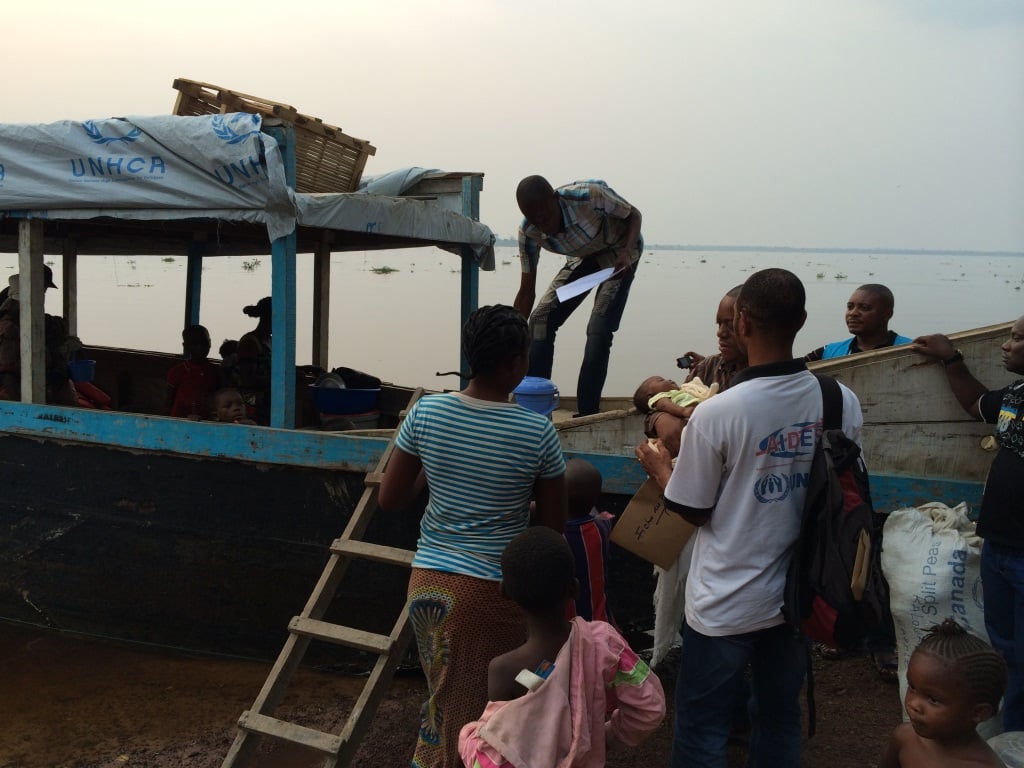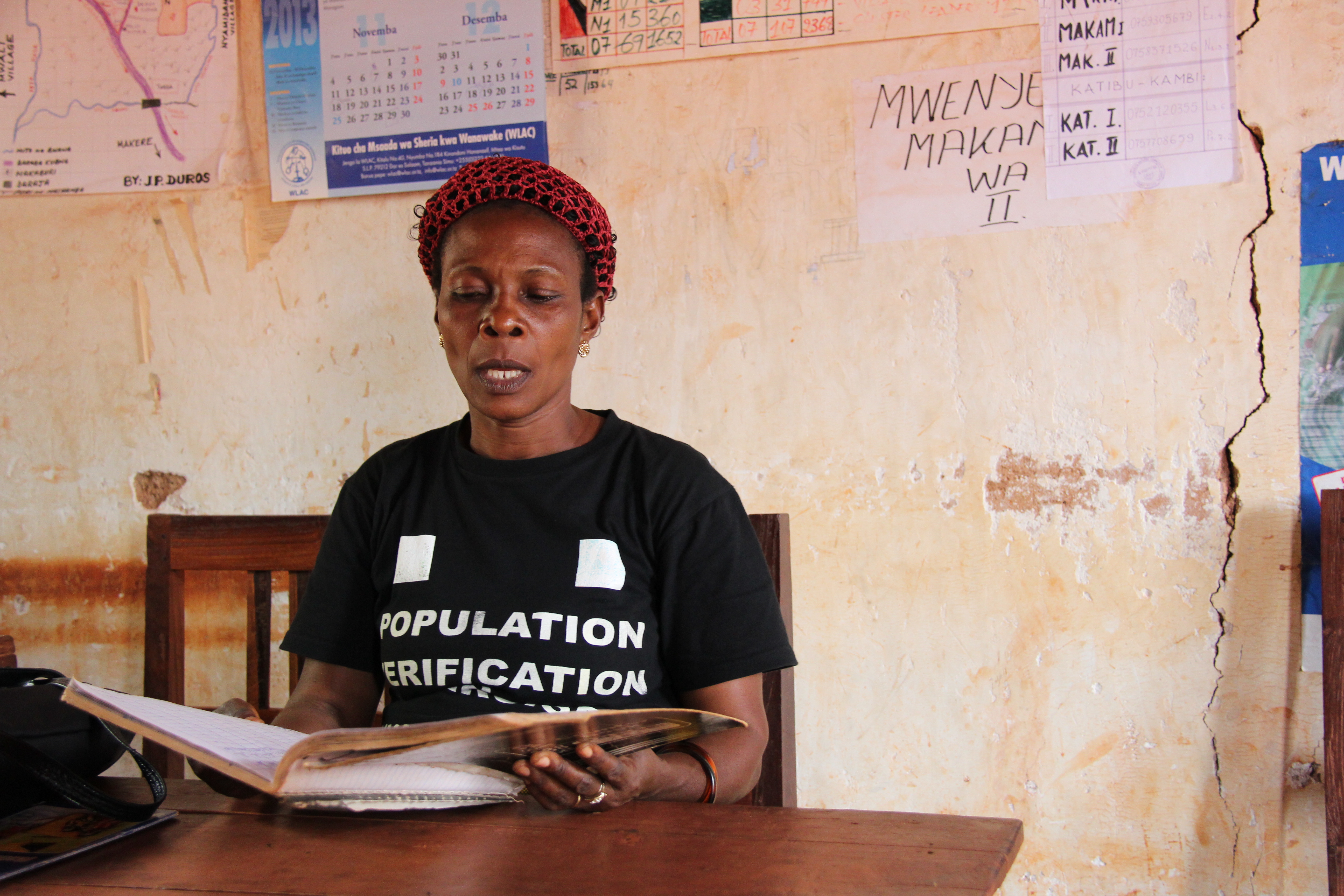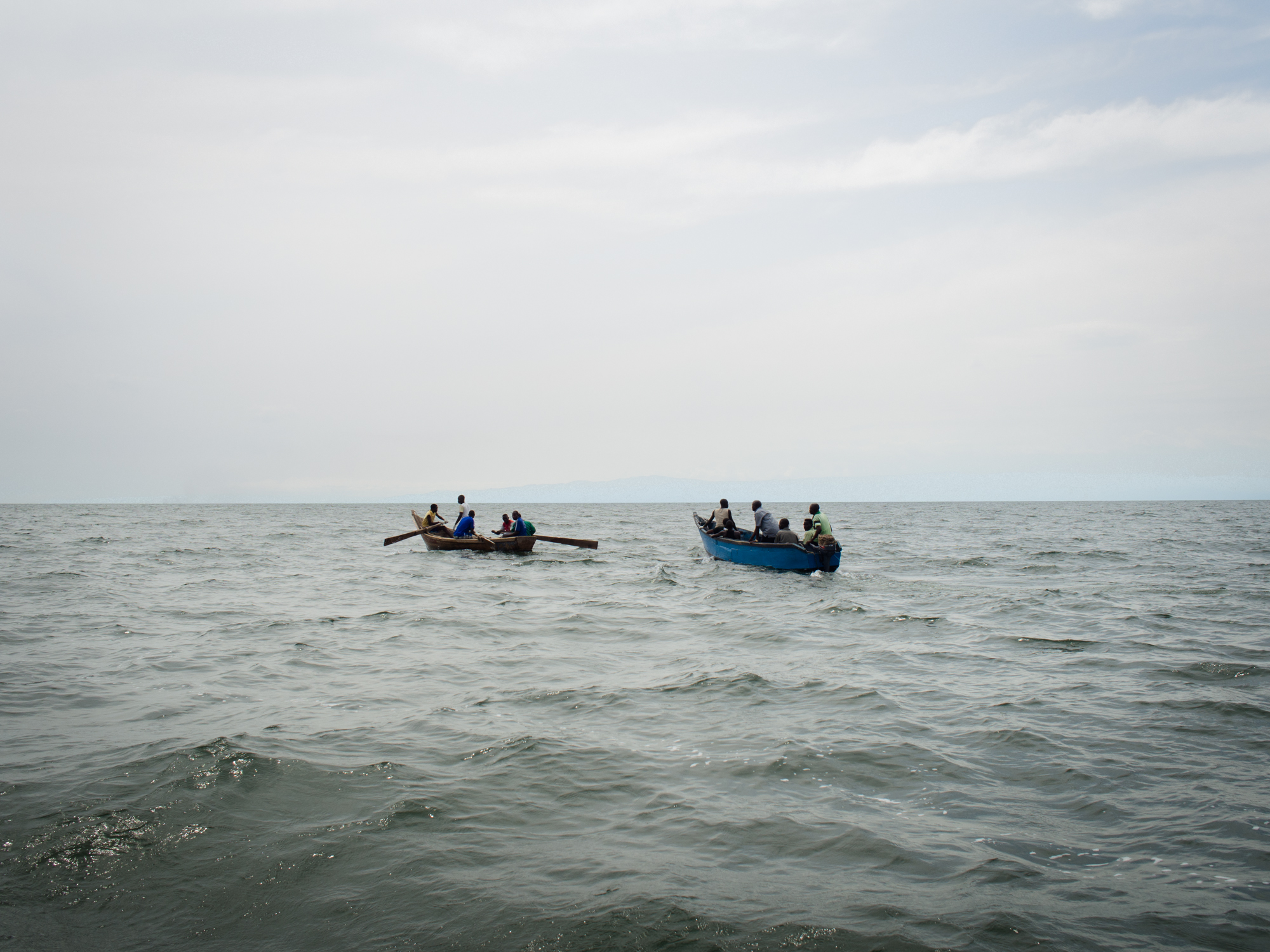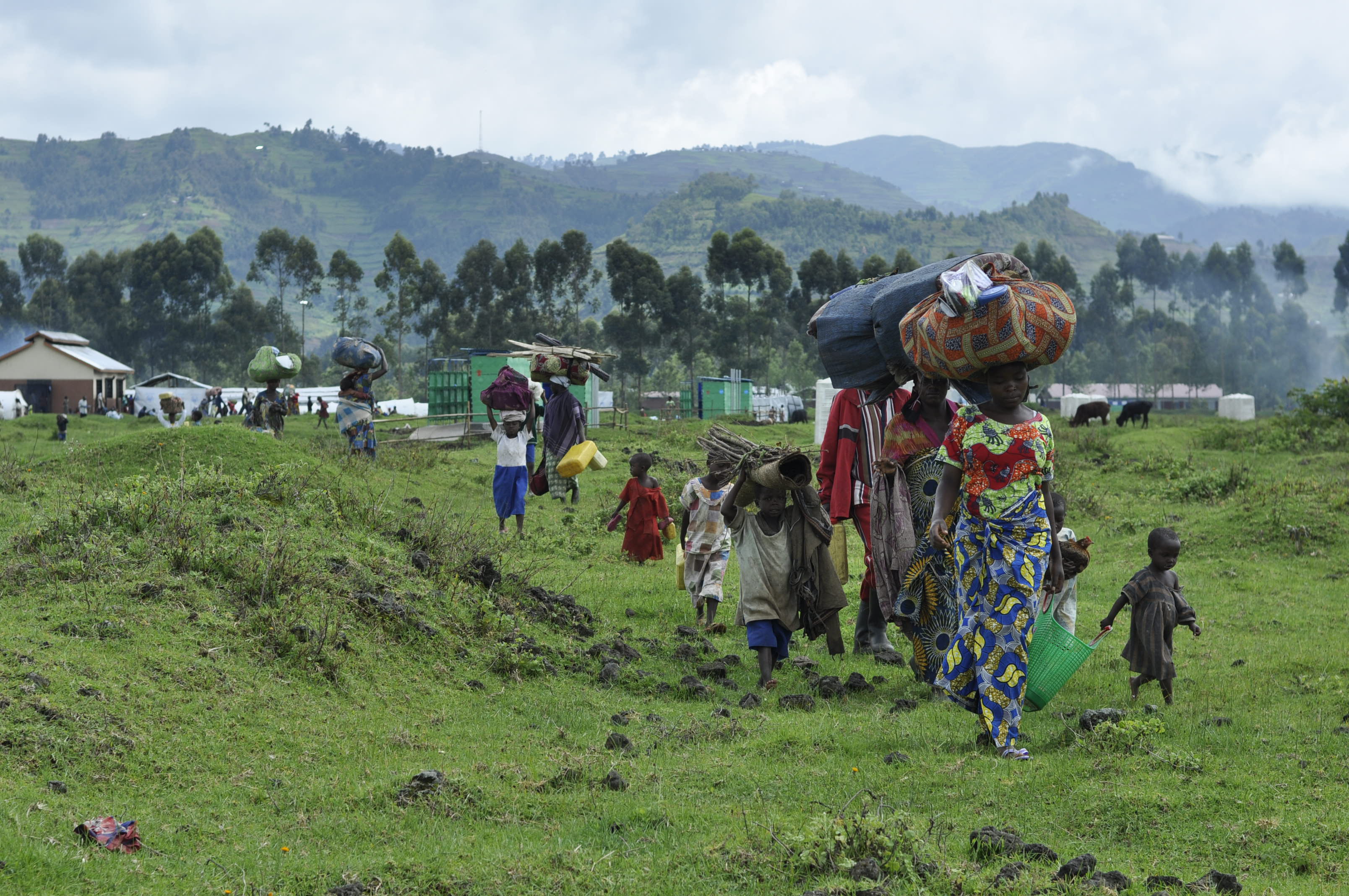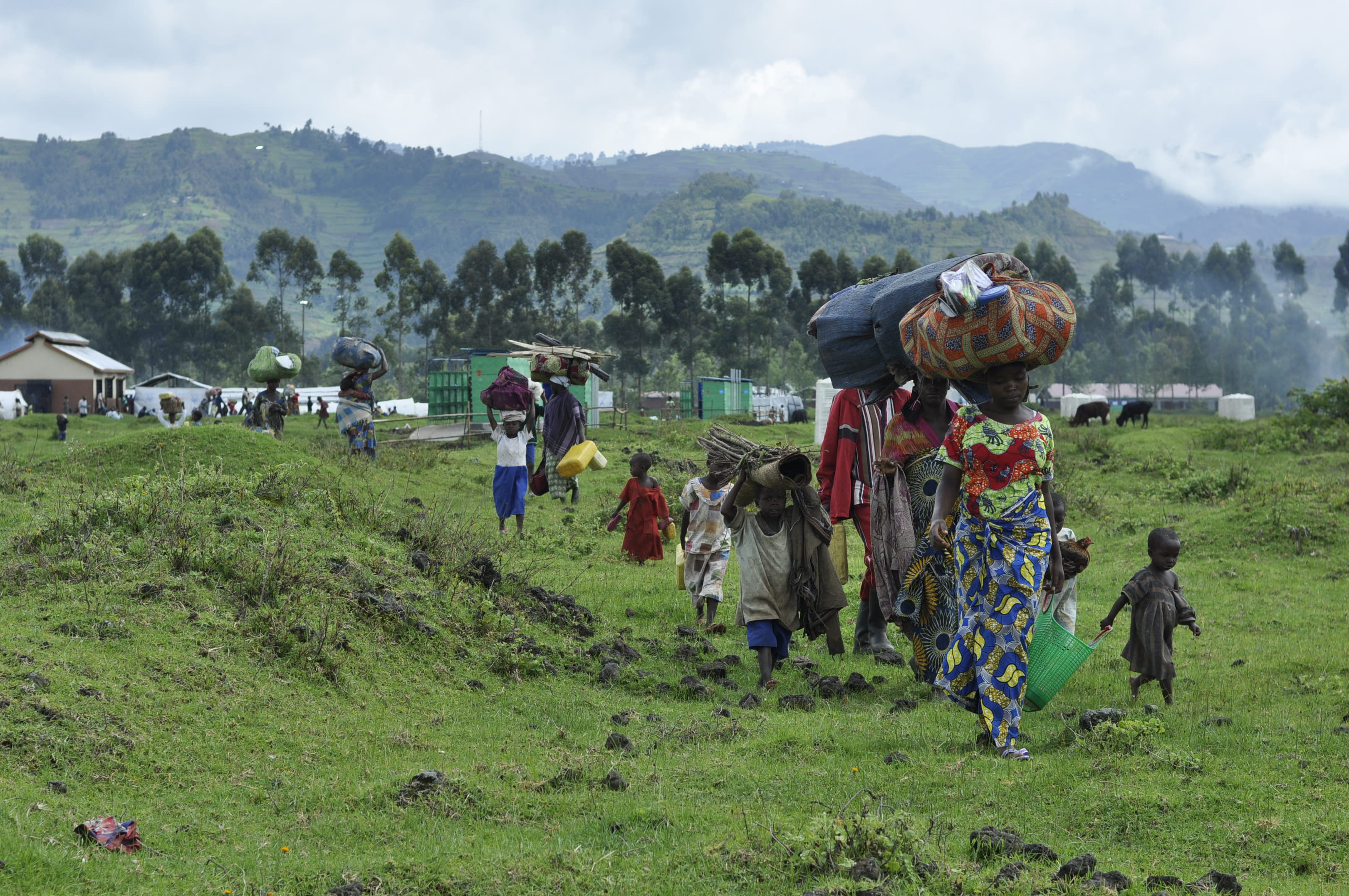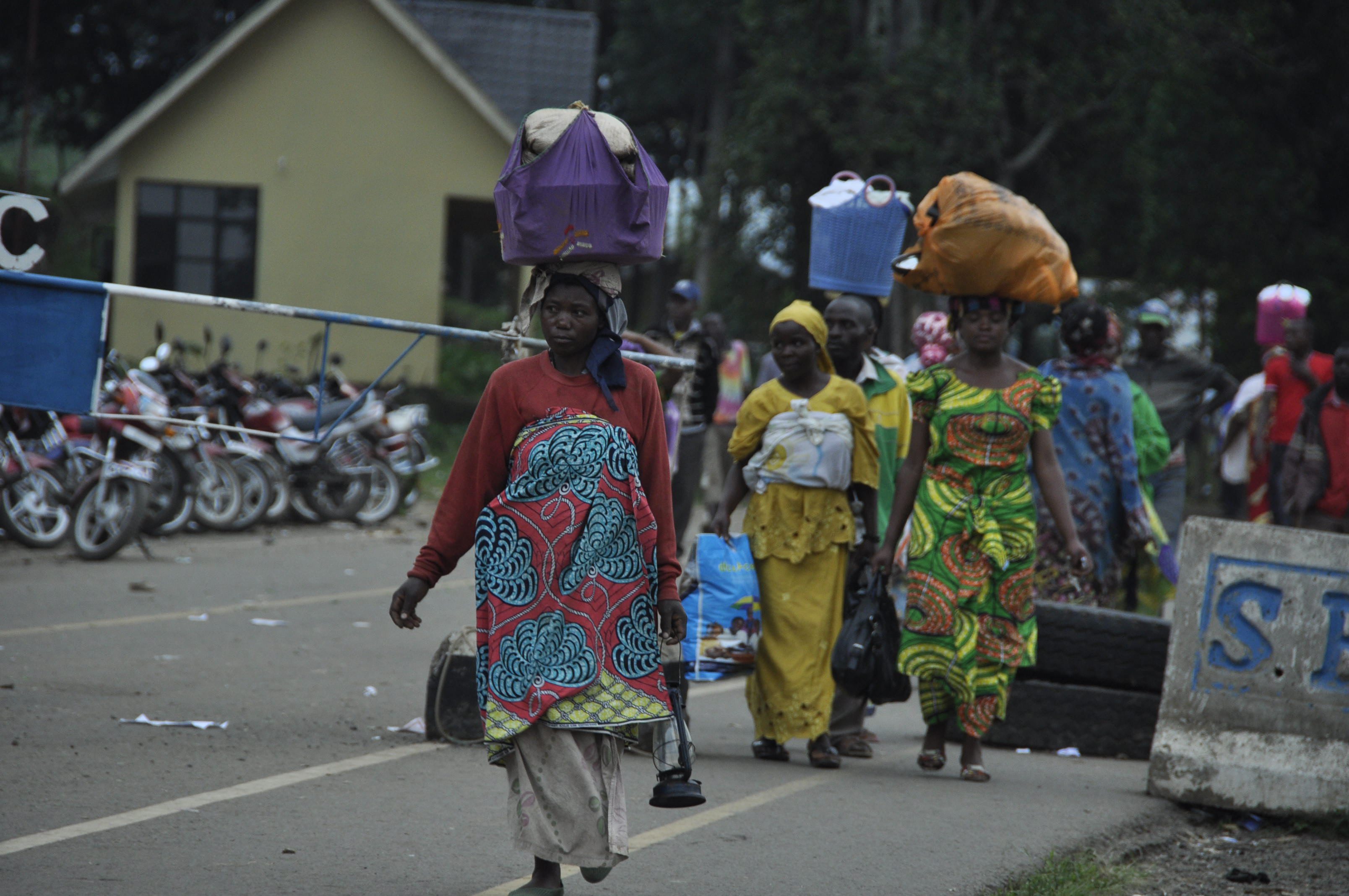Congolese refugee children attend catch-up classes in Rwanda
Congolese refugee children attend catch-up classes in Rwanda

KIGEME, Rwanda, November 12 (UNHCR) - Hundreds of young Congolese refugees have been catching up on their education before joining the Rwandan school system in January. For some, it's proving to be a cathartic experience and helping them to cope with the trauma of displacement.
The orientation classes began in the southern Rwandan town of Kigeme last month and will last until the end of the year. Organized by the Adventist Development and Relief Agency (ADRA) and aimed at preparing the children for the Rwandan curriculum in primary and secondary schools, they are proving very popular.
To date, almost 2,800 students have registered for the classes and more are expected to join. "More and more children are coming to join the classes," explained Damascene Muvandimwe, ADRA's education facilitator at the nearby Kigeme refugee camp. "Education is their right," he added, echoing a principle promoted by UNHCR, which supports ADRA's work in Kigeme.
Before June, there were no refugees in this hilly region of Rwanda. But the camp was opened to cope with an influx of thousands of Congolese civilians fleeing fighting that erupted last April across the border in the Democratic Republic of the Congo's North Kivu province. More than 60 per cent of the 14,100 refugees are aged under 18 years.
Getting them back into school as soon as possible was always going to be a priority for UNHCR and its partners, not only to equip them with knowledge but also to keep them in class and away from negative influences.
The catch-up classes are also helping ADRA and teachers to identify children suffering from trauma and to help them to deal with it and make new friends. Sometimes it could be unsettling, said Agathe Ragira, ADRA's psycho-social counsellor.
"One day I asked the students to draw for me. One child did a nice drawing of the sun, the grass and cows, but the cows were headless," she told UNHCR visitors. "When I asked why the cows had no heads, he said that the militias had cut off the heads."
Ragira said she had trained the teachers to identify children who were still suffering from trauma and those who had been physically or sexually abused. She encouraged the children to open up. "If they want, they can then come and see me in private. Many children do that and we organize discussions and counselling for them."
ADRA has hired about 60 teachers to conduct the classes, but the agency plans to engage another 30 to cope with the extra demand - even some adults have asked if they can register.
Lessons are conducted in both English and Kinyarwanda by teachers hired locally or from among the refugee population in the Kiziba, Nyabiheke and Gihembe camps, which house more than 50,000 Congolese who have fled to Rwanda since the 1990s.
Leon has a gift for languages and teaches English and Kinyarwanda. The 22-year-old was a teacher back in North Kivu, but fled in May to escape forced recruitment by any of the rival armed groups that terrorize parts of the province. His family remains on the other side of the border.
One of Leon's language students, Yvonne, fled her village in North Kivu's Masisi territory when it came under attack. She said it took her three days to walk to the border. UNHCR arranged for her transport to the Nkamira transit centre in Rwanda, where she was reunited with a brother.
She said Leon, who is only four years older than Yvonne, had good reason to be worried. "In [the North Kivu town of] Mushake, armed men chained young boys [for forced recruitment]. My brother fled into the fields," said the young woman, whom she last saw during the attack.
Yvonne said she was so happy when she realized that she would be able to continue studying after she had been transferred to Kigeme camp. "I like to go to school. If you go to school, life will be easier for you," she said, while adding poignantly: "I do not know when I will leave Rwanda." But studying gave her hope for the future.
Another student, 16-year-old Patrick Mwiseneza, is in the camp with his mother and father after leaving the town of Kilolirwe in mid-June. "I think that English is difficult, but step by step I will learn it," said the teenager, who was used to French and Kiswahili. He said he wanted to return home, but in the meantime, "I want to be a good student and become a teacher, or someone important in the responsible management of my country."
Meanwhile ADRA's Damascene Muvandimwe was impressed by the enthusiasm shown by so many young people in studying, despite their bleak outlook and the cycle of suffering. "Before these orientation classes started, the road next to this school was always full of children, but now you can see that they are all in class."
By Céline Schmitt in Kigeme, Rwanda

